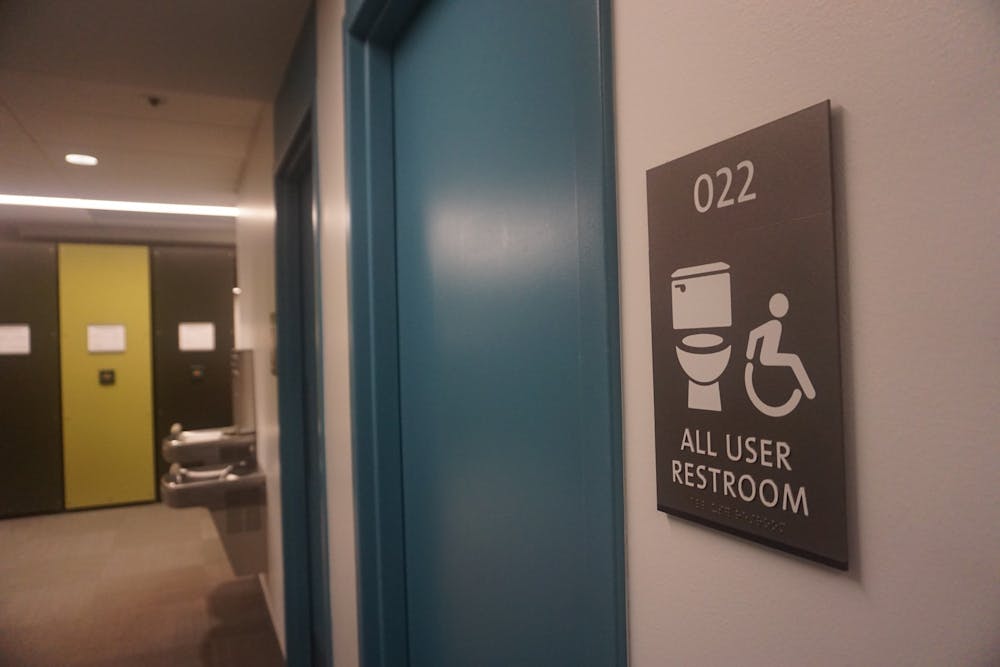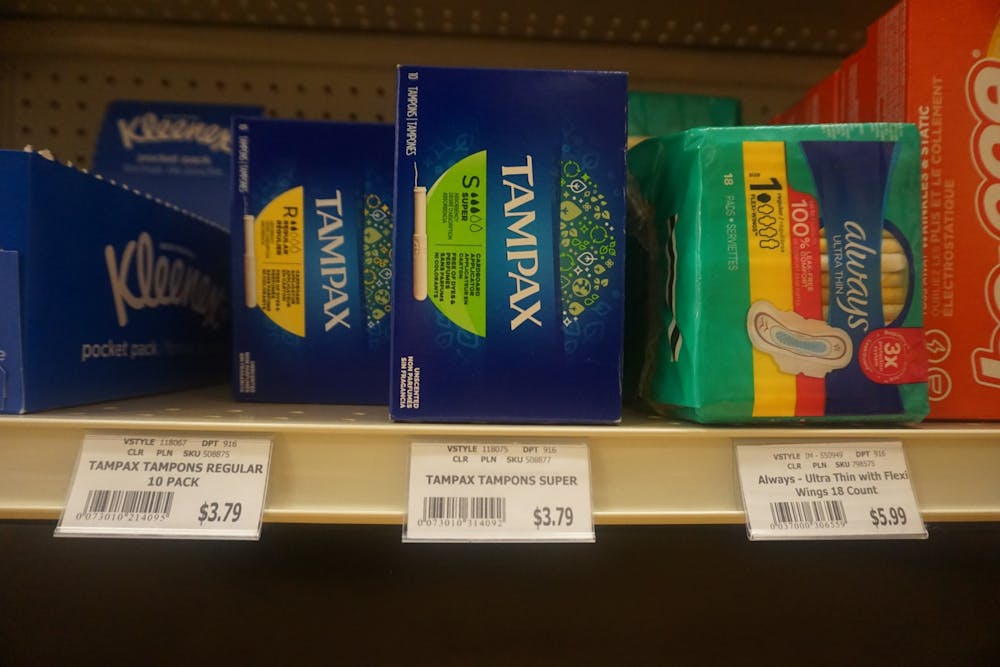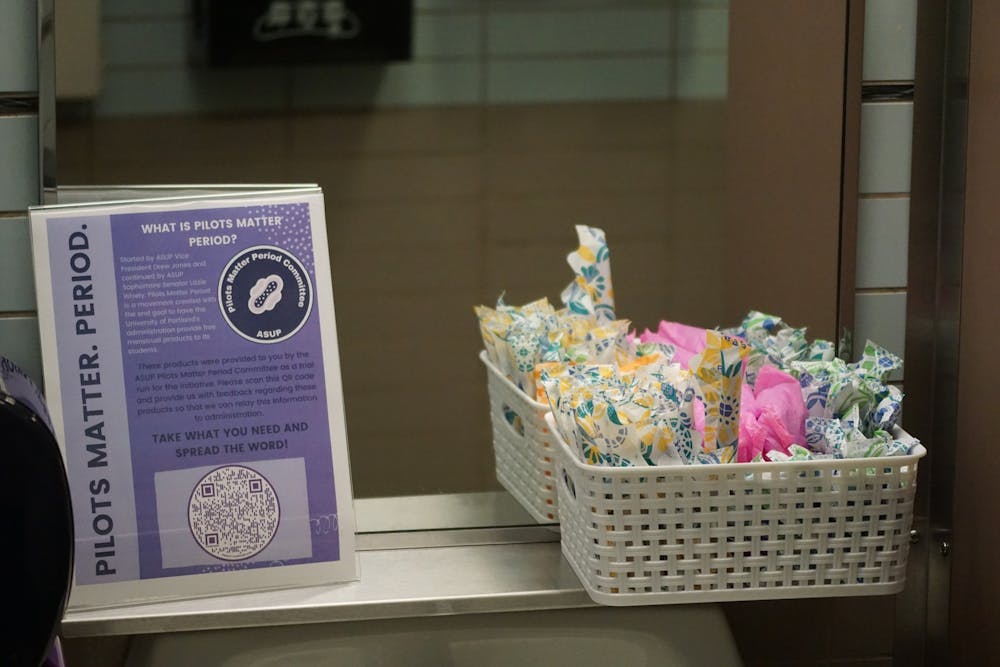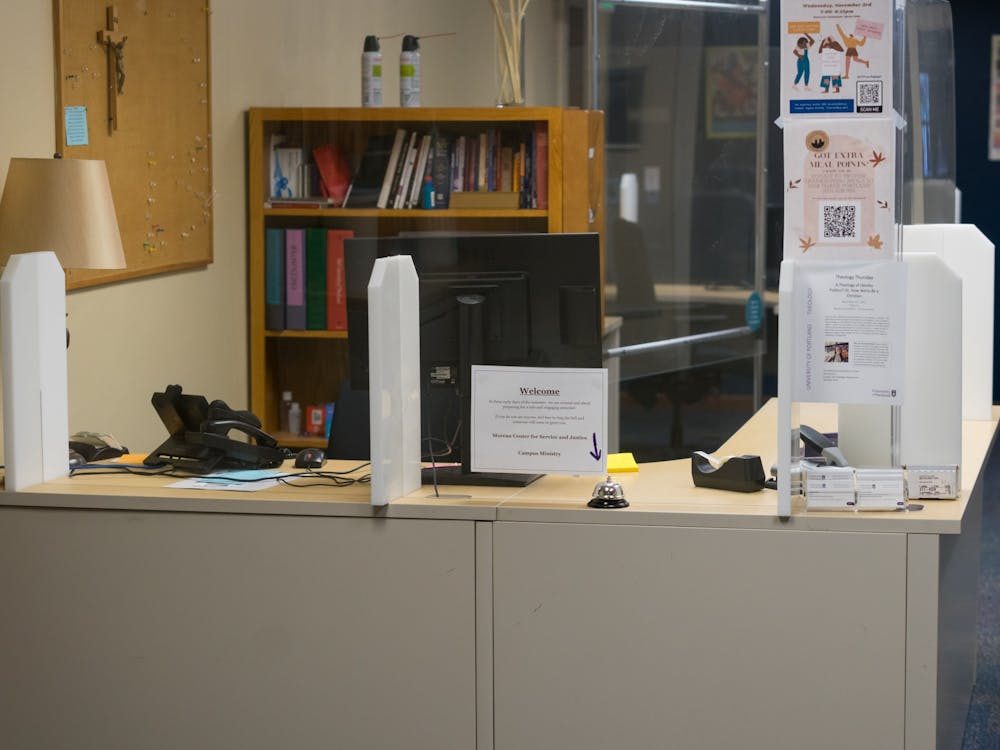Menstrual equity has become popularized over recent years and several universities across the country are making it their goal to have menstrual products free and accessible to their students.
Heavily inspired by PERIODand similar movements spread to other campuses, Drew Jones, freshman ASUP senator during the 2019-20 academic school year, with the ASUP senate at the the time sought out to make menstrual products easily accessible.
UP alum Tori McDonald '20 and the American Medical Women's Association (AMWA) on campus also worked alongside ASUP to bring the idea into fruition.

Today, students can find baskets filled with free menstrual products and an informational sheet in women’s and gender neutral bathrooms in 11 buildings around campus. But ASUP — which has been funding the program on their own — is pushing to have these products funded through the University, and they are using QR codes to support their case.
The QR codes, found on the informational sheets, lead to a feedback form which will be used to gather input from students to present to administration, showcasing the importance of the Pilots Matter Period (PMP) initiative on campus. All academic buildings, the Beauchamp Center, dining halls and the Clark Library hold these baskets for the trial run — with the long term goal of having them available in every bathroom on campus.
“Eventually we want to get products in all the bathrooms because even if someone identifies as male, they might still menstruate,” sophomore Senator and PMP co-chair Lizzie Wisely said. “We want to make sure that they have those resources available as well.”
As of right now, there are three types of menstrual products being sold at the University Bookstore: regular absorbency tampons, super absorbency tampons and ultra thin pads.
Jones’s discontentment with the only place on campus selling menstrual products being the University Bookstore, sparked the creation of PMP.
With a limited variety of menstrual products available to purchase, the purpose of PMP is “empowering those who menstruate and valuing their health as something that must be addressed,” as stated in the original resolution.

Period flow can range in heaviness, and a limited selection of products does not cater to the students that need them.
PMP, being a pre-pandemic project, was abruptly put on hold as students were sent home in March 2020. But with a majority of students back on campus for the 2021-22 academic year, Jones, with significant help from Wisely, have taken advantage of the situation to begin a PMP trial run.
“I made it my personal goal to have products in place before in-person classes started,” Wisely said. “I was really excited to get involved with PMP either way and just got really lucky I was made co-chair. Since then, I’ve been working really hard to get this initiative in place.”
Fully funded by ASUP, $750 has been pulled out of the sexual health and wellness fund to purchase the baskets filled with menstrual products and sign holders. A resolution will be proposed to pull $1,000 from the health discretionary fund in order to work towards restocks, done by a group of ASUP members.
But ASUP’s goal for the future is to have PMP funded by Student Affairs and for restocks to be done by Physical Plant, according to Jones.

“We’re using this as a pilot program first to see how things go,” Jones said. “Once we get enough data, we’re going to meet with administration and make our case as to why they should do this and continually fund it.”
Wisely, Jones and all those involved with PMP want to emphasize that students who are equally as passionate about menstrual equity and free menstrual products should fill out the feedback form so that PMP can be sustainably funded and become more permanent.
“Period poverty is a big thing in America,” Wisely said. “By taking a small step, college students who already have so much to worry about when it comes to tuition and expenses, don’t have to worry about spending hundreds of dollars on products a year just because of something they can't control.”
Anyone interested in participating in the PMP initiative can reach out to Wisely or Jones via email, or ASUP news on Instagram (@asup_news).
Janea Melido is a reporter for The Beacon. She can be reached at melido24@up.edu.








